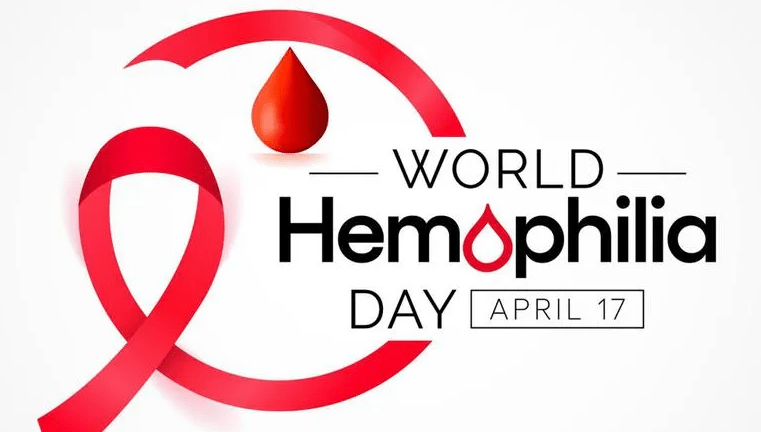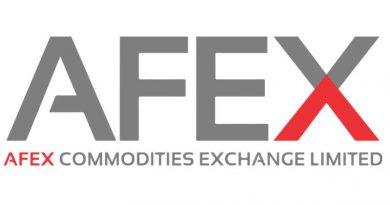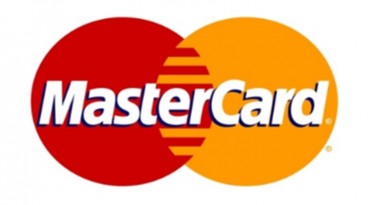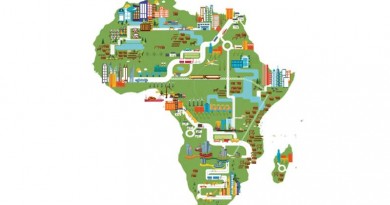World Hemophilia Day 2022 – “Access for All: Integrating inherited bleeding disorders into national policy”
April 17, 2022 is World Hemophilia Day. The theme of the event this year is “Access for All: Partnership. Policy. Progress. Engaging your government, integrating inherited bleeding disorders into national policy”. This important event is about bringing the global bleeding disorders community together. By raising awareness and bringing hemophilia and other inherited bleeding disorders to the attention of policymakers, we can increase sustainable and equitable access to care and treatment. The world continues to be affected by the COVID-19 pandemic and the conflict in Ukraine, but one thing hasn’t: we are still in this together, and we will always be stronger together as a community in our shared vision of “Treatment for All”.
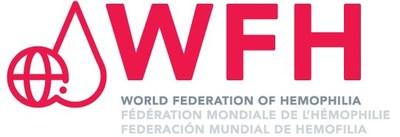
“World Hemophilia Day is day for people who have been affected by a bleeding disorder—either because they have one, or because they care for someone who does. But we can’t forget that governments play a critical role. It’s important that they recognize bleeding disorders and assist people who have a condition in their countries.”
—Cesar Garrido, WFH President
There are many ways you can bring attention to hemophilia and other inherited bleeding disorders in your local and global community to raise awareness of the need for inclusion in national policy. Whether you are a person with a bleeding disorder, a national member organization (NMO), or a healthcare professional, here are just a few things you can do to get started:
- Get social by posting about inherited bleeding disorders on Facebook, Twitter and LinkedIn using the #WorldHemophiliaDay, #WHD2022, and #LightItUpRed hashtag
- Organize an event, host a community event, webinar, forum or Town hall and invite elected officials to learn more about your work first-hand and to meet with the community
- Participate in the World Hemophilia Day Light it Up Red campaign. Last year, thousands of people worldwide showed their support—while respecting local COVID-19 requirements—by lighting up 100+ landmarks red in cities across the world
- Support our global advocacy efforts by making a donation or organizing a fundraising event
- Share your story about how you or someone you know has been affected by inherited bleeding disorders, and read the stories of others
- Take action locally and use the WFH World Hemophilia Day materials to send a letter to your local policymakers, set up meetings with elected officials and health ministers and engage with the local media
- Contact your local national member organization (NMO), to find out how you can support them
- Download resources like posters and social media banners from wfh.org/whd to help build your World Hemophilia Day Campaign
- Send pictures, comments, or questions to the WFH at [email protected]
To learn more about World Hemophilia Day, please visit wfh.org/world-hemophilia-day.
The WFH would like to thank our 2022 World Hemophilia Day sponsors for their continued support: Bayer, BioMarin Pharmaceutical Inc., Biotest, CSL Behring, F. Hoffman-La Roche Ltd., Freeline Therapeutics, GC Pharma, Grifols, Kedrion, LFB S.A, Novo Nordisk, Octapharma, Pfizer, Sanofi, Sobi, Spark Therapeutics, and Takeda.About hemophilia and other bleeding disorders
In people with bleeding disorders, the blood clotting process doesn’t work properly, with the result that they can bleed for longer than normal, and some people may experience spontaneous bleeding into joints, muscles, or other parts of their bodies which can lead to developmental and permanent mobility issues. The overwhelming majority of people living with inherited bleeding disorders around the world still do not have access to diagnosis, treatment and care.About the World Federation of Hemophilia
The World Federation of Hemophilia (WFH) is a non-profit organization dedicated to improving and sustaining care for people with inherited bleeding disorders around the world. Our vision of Treatment for All is for a world where all people with inherited bleeding disorders have access to care, regardless of their type of bleeding disorder, gender, or where they live.
We work in partnership with healthcare providers (HCPs), governments, and our global network of national member organizations (NMOs) in 147 countries. We provide our NMOs and healthcare providers with the knowledge and tools they need to identify, support and treat people living with bleeding disorders in their communities, while promoting global advocacy and collaboration to achieve our common goals.
To find out more about the WFH, please visit www.wfh.org.

